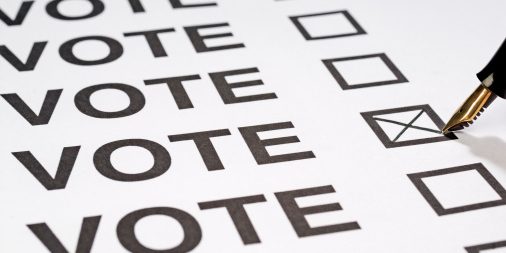The Let MI Kids Learn campaign submitted signatures on Aug. 10 for a tax credit educational scholarship program in Michigan.
The initiative, if approved, would provide for income tax credits for contributions to organizations for the granting of Student Opportunity Scholarships. A companion initiative, also supported by the Let MI Kids Learn campaign, would create the program for Student Opportunity Scholarships. A Student Opportunity Scholarship would be a grant for certain eligible students that meet income or disability requirements, or children who are in foster care. The grant can be used for tuition, textbooks, school uniforms, and other educational expenses, including for nonpublic education. The Let MI Kids Learn campaign did not submit signatures yet for this companion initiative, but a spokesperson of the Let MI Kids Learn campaign, Amy Hawkins, says that the signatures for the companion initiative are coming soon.
“After school shutdowns and COVID learning loss, families are desperate for the change that this proposal brings to Michigan education,” said Fred Wszolek, a spokesperson for the Let MI Kids Learn campaign. “Michigan families will soon have more educational choices for their children than anywhere in America, and that’s good news for the future of our state.”
The Let MI Kids Learn campaign submitted 520,598 signatures to the Michigan Bureau of Elections. To place an initiative on the ballot in Michigan, 340,047 valid signatures are required. However, the deadline for submitting signatures to qualify for the November 2022 ballot was on June 1, so the initiative would not qualify for the 2022 general election, but for the 2024 general election. This would occur if the measure is not approved by the legislature first.
Out of the twenty-one states that allow initiated state statutes, nine states, including Michigan, use an indirect process for initiated statutes. This means that after a campaign submits signatures and has the signatures verified, the initiative goes to the state legislature. The state legislature then has 40 days to adopt or reject the initiative. In Michigan, if the legislature approves of the initiative, the governor does not have the power to veto it. If the legislature rejects the initiative, it goes on the ballot for voters to decide.
A spokesperson for the For MI Kids, For Our Schools campaign, which is leading the opposition to this measure, said that this initiative would take funding away from public schools.
“Our local schools are struggling with an educator shortage and a lack of mental health resources for our kids,” said Casandra Ulbrich, “This voucher proposal will only make the situation worse by taking away hundreds of millions of dollars every year from our local schools and giving the funding to for-profit private schools that are unaccountable to taxpayers.”
The initiative will wait for the signature verification process by the Bureau of Elections. If there are at least 340,047 valid signatures, the measure will go to the Michigan State Legislature for consideration.
Additional reading:


